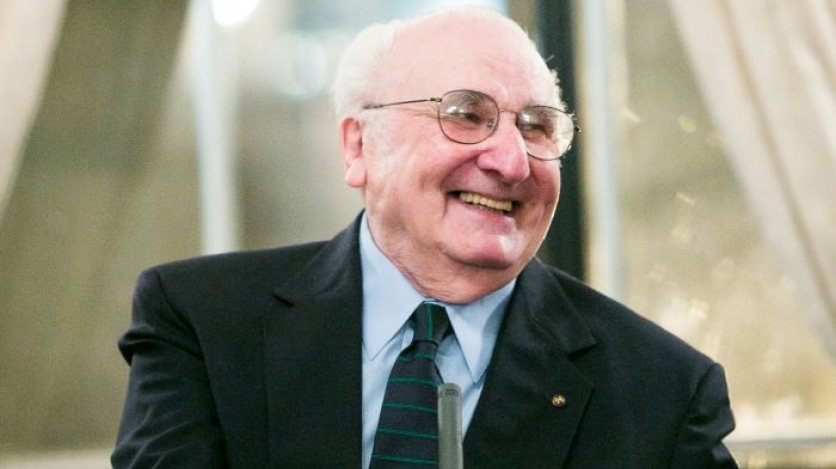

|
Mario Davidovsky was born on 4 March 1934 in Medanos, a town in the province of Buenos Aires, Argentina. His main teacher was the composer Guillermo Graetzer. In 1958 he was invited to participate in the Berkshire Music Center at Tanglewood, where he studied with Aaron Copland. Davidovsky’s interest in the fledgling field of Electronic Music was further encouraged by meeting Milton Babbitt, a faculty member that year. Learning of the imminent opening of the Columbia-Princeton Electronic Music Center in 1959, he joined the early group of composers there and later became the Center’s director. Widely recognized for his seminal contributions in the realm of electro-acoustic music, his Synchronisms No.6, for piano and electronic sounds, won the Pulitzer Prize in 1971. He received commissions in the US and abroad from various organizations including: the Philadelphia Orchestra, the San Francisco Symphony, Orpheus Chamber Orchestra, the Juilliard and Emerson String Quartets, Speculum Musicae, the Parnassus Ensemble, NYNME, Chamber Society of Lincoln Center, and many others. He also received numerous grants and awards including Guggenheim and Rockefeller Fellowships, The Kaske Prize (Germany), Naumburg Award, Asociación Wagneriana, and Asociación Amigos de la Musica (Argentina), to name a few. Davidovsky was the Fanny P. Mason Prof. Emeritus at Harvard University, former MacDowell Professor of Music at Columbia University, and the director of the Composers Conference and Chamber Music Center at Wellesley College. He was a member of the American Academy of Arts and Letters, the American Academy of Arts and Sciences, and the Academia Nacional de Bellas Artes (Argentina). His music has been recorded by Columbia Records, CRI, New World Records, Wergo, Nonesuch, Finnadar, Turnabout, Bridge Records, DGG, Albany Records; and published by C.F.Peters Corp., E.B.Marks Corp., and McGinnes & Marx. He died in New York City on 23 August 2019. |
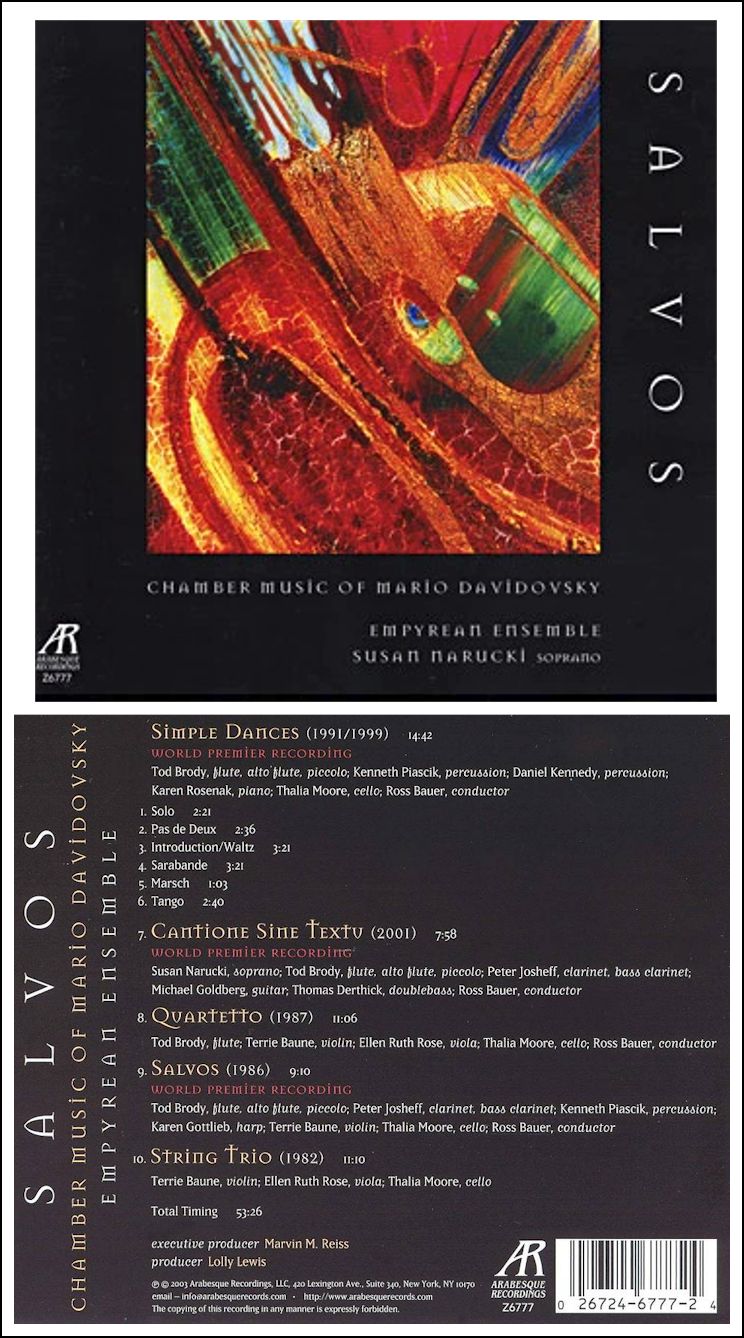
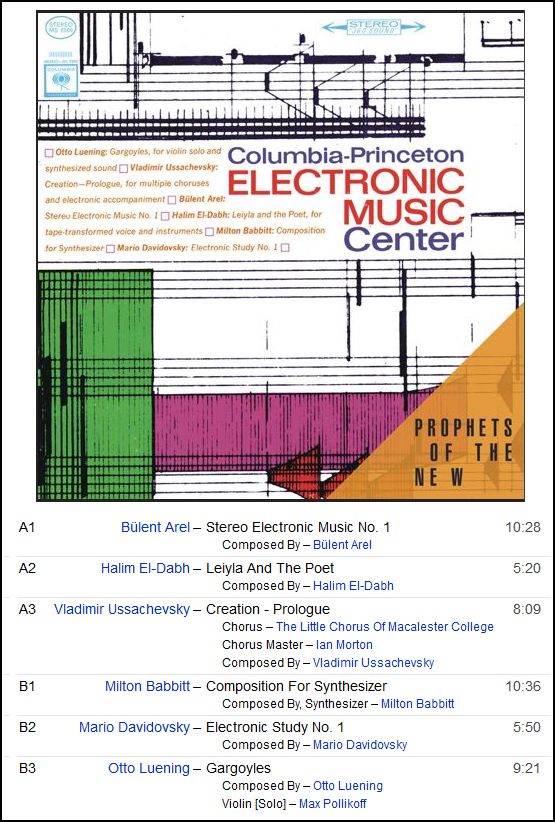
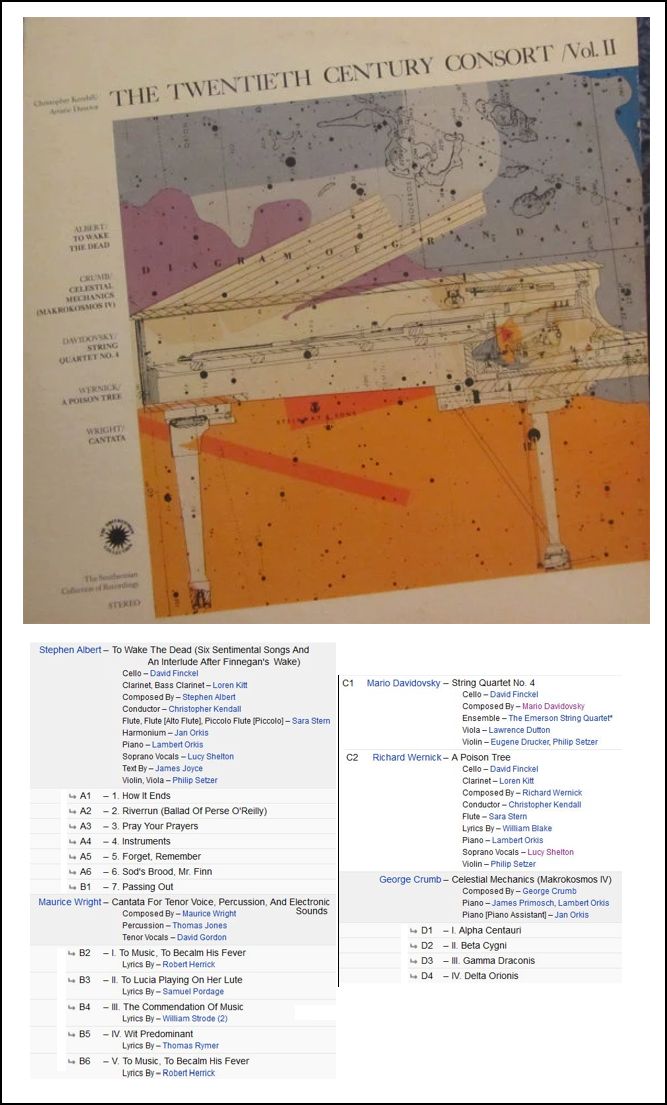
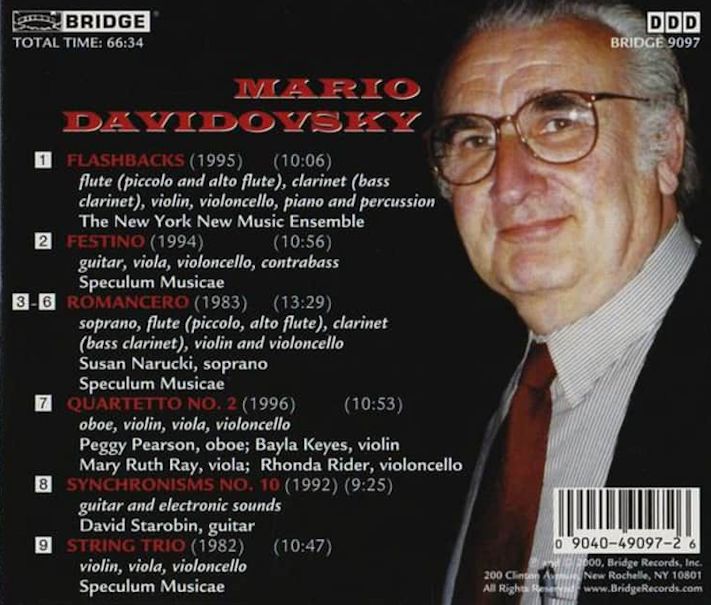 BD: It sounds like it’s all worked out very well for
you!
BD: It sounds like it’s all worked out very well for
you!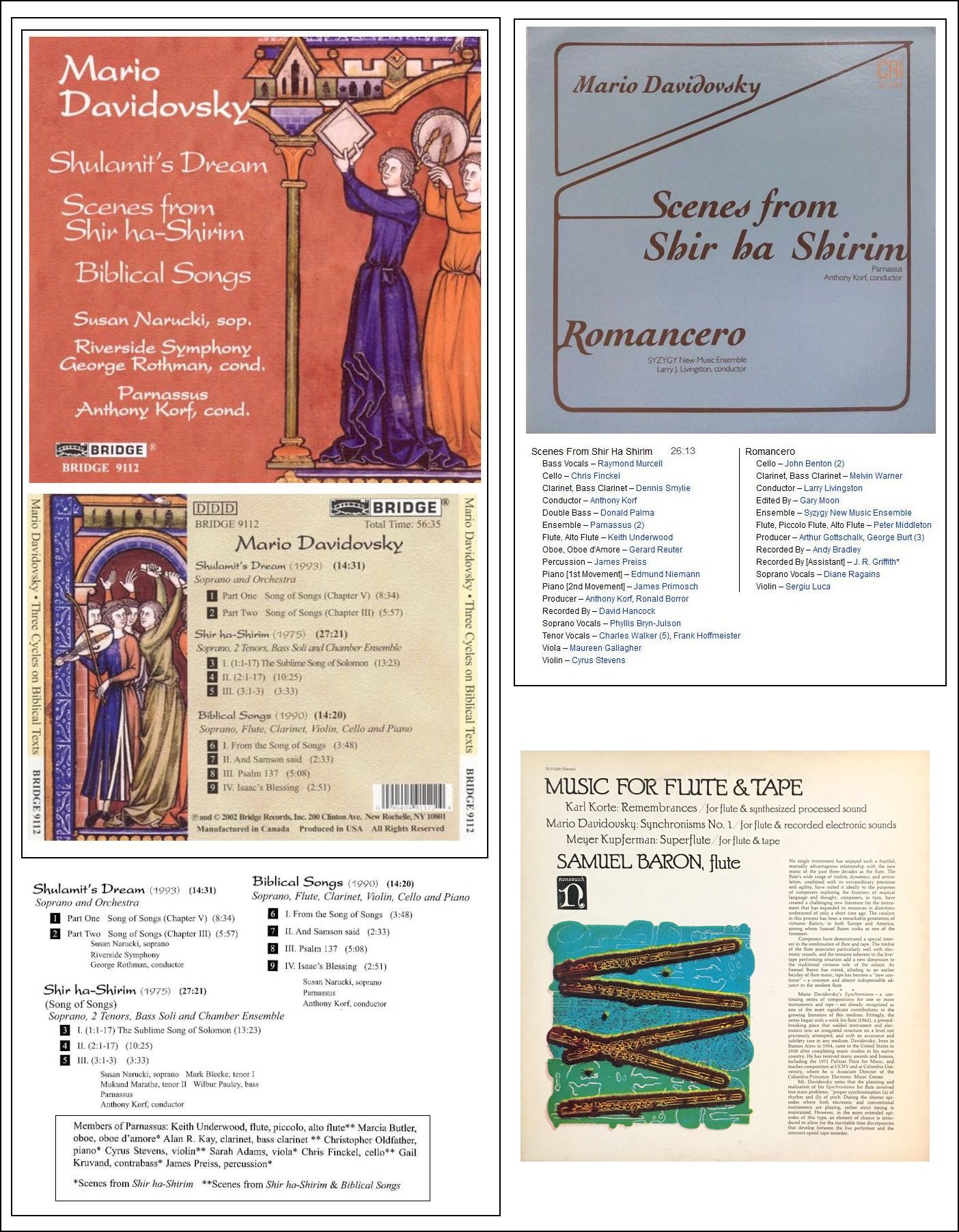
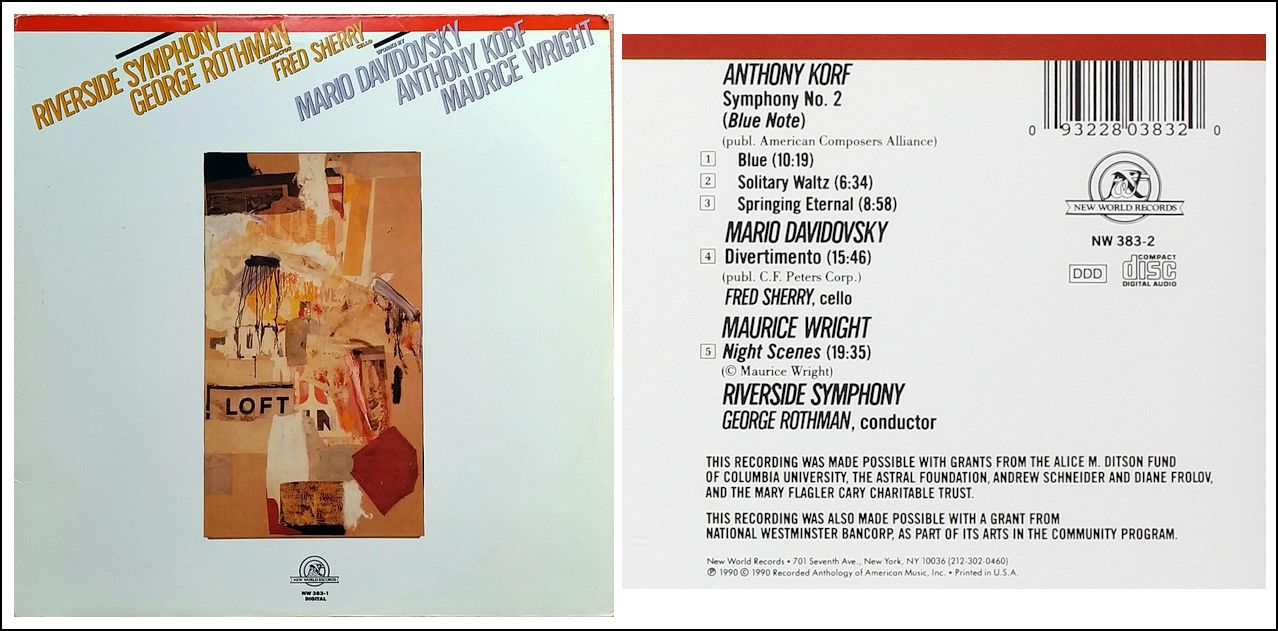
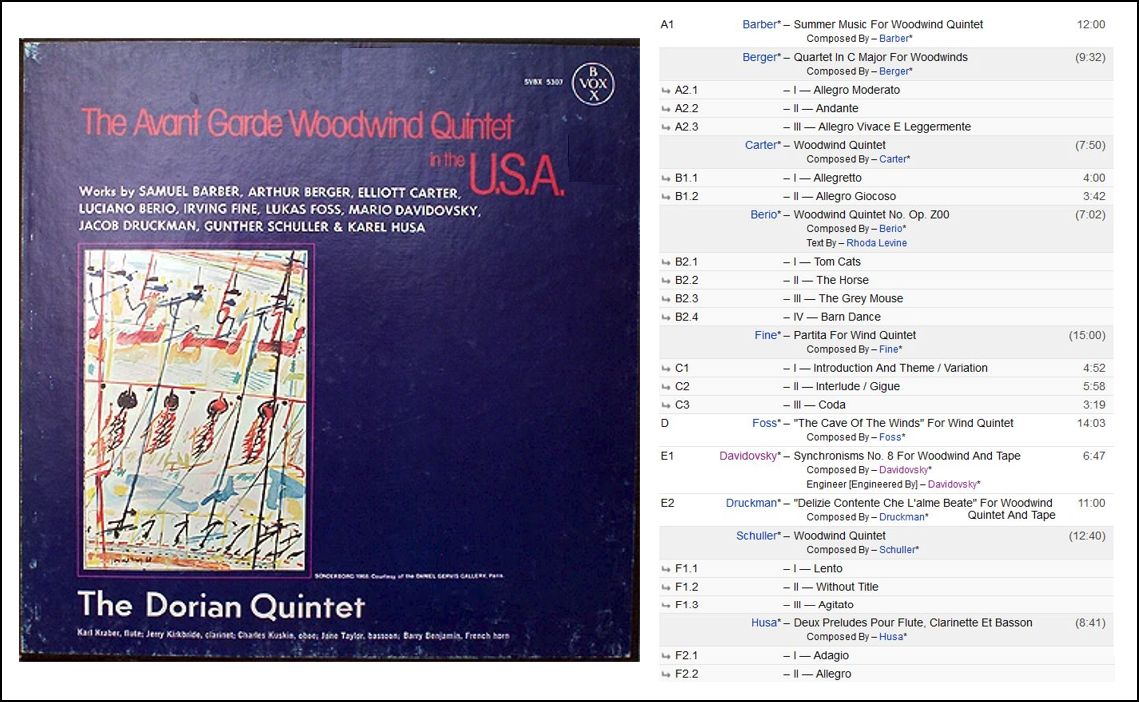
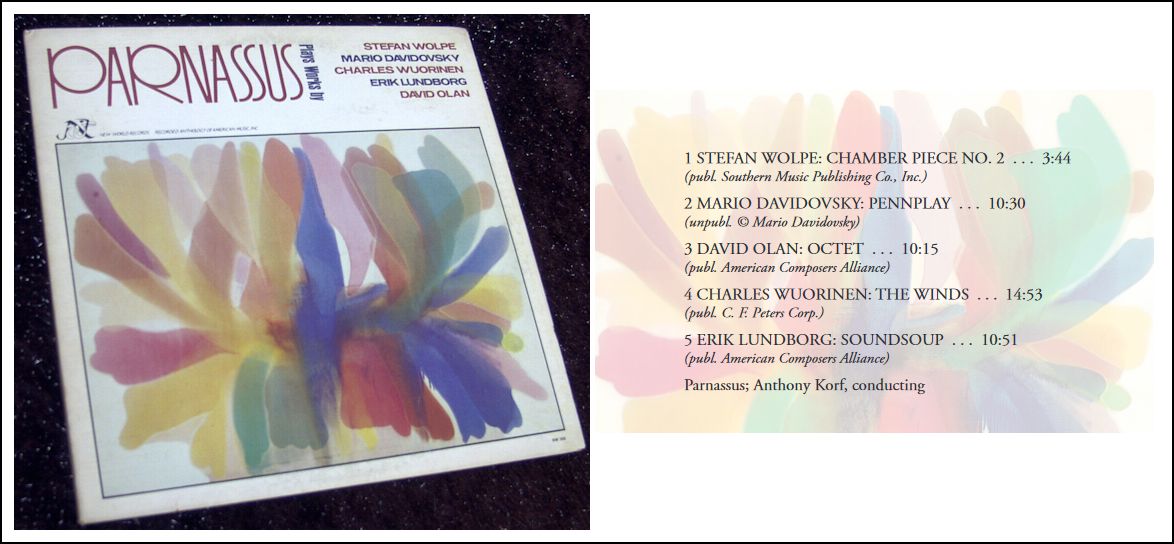
See my interview with Charles Wuorinen; also
Recollections of Stefan
Wolpe by his student M. Willaim Karlins
© 1994 Bruce Duffie
This conversation was recorded on the telephone on February 4, 1994. Portions were broadcast on WNIB the following month, and again in 1999. A copy of the un-edited audio was placed in the Archive of Contemporary Music at Northwestern University. This transcription was made in 2021, and posted on this website at that time. My thanks to British soprano Una Barry for her help in preparing this website presentation.
To see a full list (with links) of interviews which have been transcribed and posted on this website, click here. To read my thoughts on editing these interviews for print, as well as a few other interesting observations, click here.
Award - winning broadcaster Bruce Duffie was with WNIB, Classical 97 in Chicago from 1975 until its final moment as a classical station in February of 2001. His interviews have also appeared in various magazines and journals since 1980, and he now continues his broadcast series on WNUR-FM, as well as on Contemporary Classical Internet Radio.
You are invited to visit his website for more information about his work, including selected transcripts of other interviews, plus a full list of his guests. He would also like to call your attention to the photos and information about his grandfather, who was a pioneer in the automotive field more than a century ago. You may also send him E-Mail with comments, questions and suggestions.